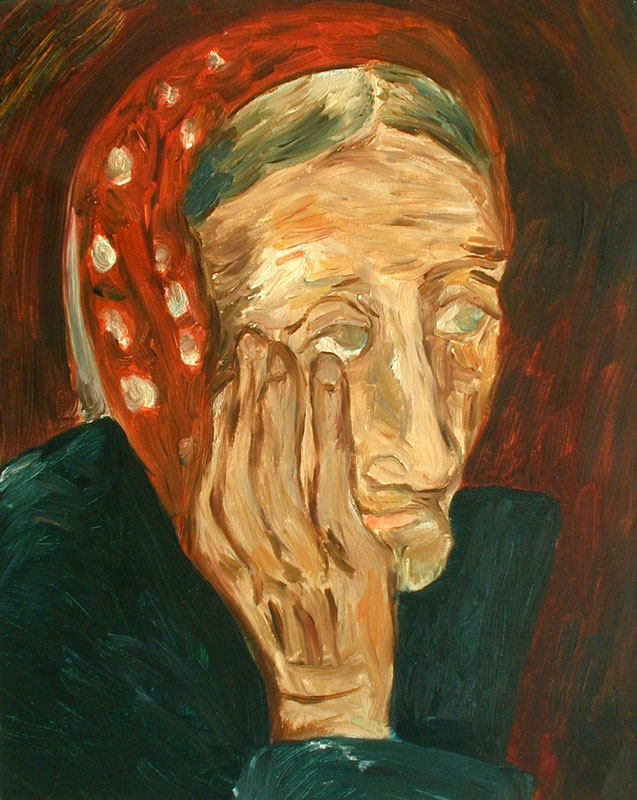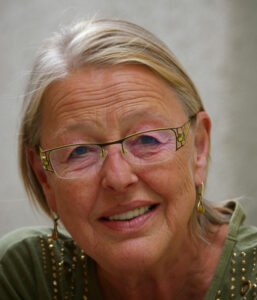The burden of wars in the generations after
Author: Marina Stachowiak
Wars and authoritarian upbringing lead to severe transgenerational traumas in children and also adults. These traumas are also passed on to the next generation. Psychologically burdening people, often without understanding the connection. The new discipline of epigenetics shows that these traumas can also be inherited physically. Given the suffering of those affected, this is a problem that has received far too little attention.
We have all experienced something in our lives that has deeply hurt, burdened or traumatized us. Such experiences have a kind of long-term effect in our consciousness.They bring us in further life again and again in resonance with self-similar incidents. What we once experienced accompanies our further life, and we feel it in its very different effects. Be it mentally, psychologically or also in the form of bodily symptoms and illnesses. It therefore reminds us again and again of experiences we have not overcome and their effects on our lives. This includes not only our own experiences, but also those that our ancestors couldn’t overcome and passed on to us.
The war experiences of our parents, grandparents and great-grandparents are considered the most serious. Did our ancestors experience wars? The Holocaust, famine, flight and expulsion or rape? Were they in extermination camps or prisons? Did they experience bombardments or frontline operations? Or were they in other dangers and hardships? Were they able to cope with what they had experienced or did they break? What unresolved issues have they passed on to us?
In 2005, the social psychologist Hartmut Radebold coined the term “transgenerational transmission of war-related stresses”. This refers to the fact that:
The psychological consequences of devastating experiences and traumas during the Second World War and under the Hitler regime were passed on to subsequent generations.
THE INDIVIDUAL IS NOTHING, THE COLLECTIVE IS EVERYTHING
In addition to the war traumas experienced, a serious and highly stressful factor that is passed on transgenerationally is the authoritarian upbringing. Which was strict and militaristic, even before the Nazi regime. Discipline and order, above all subordination to superiors. And, as a rule, to male authorities, as well as adherence to the prescribed gender-specific norms for girls and boys. Or for women and men, turned children into submissive and compliant people.
In this respect, the already established educational traditions during the Hitler regime served the purposeful construction of a wartime generation in which the individual person counted for nothing and the National Socialist collective for everything. This is also a reason for the silence of the war generations, not to give any importance to their own suffering. Sabine Bode describes the war children in their particularity: “Here we are dealing with a large group of people who had had devastating experiences in their childhood, but the majority of whom, for decades, never thought they had experienced anything particularly bad. They said in unison: this was normal for us, and it remained normal for them, at least that’s what their feelings told them.”
“They lacked emotional access to their most important imprints.”
Crucial for this generation, above all, was also the lack of trust and secure ties to parents and confidants, so that a healthy individual development of their personality was not possible. On the one hand, people carried out National Socialist pedagogy with a great deal of coercion and obedience, but on the other hand it also offered children and young people fascinating things in the National Socialist children’s and youth organizations in order to win them over to their own ideology, because, as the Nazis propagated, “He who has the youth has the future.”
THE CHILDREN OF WAR AND TRANSGENERATIONAL INHERITANCE
Those who experienced the immediate effects of the Second World War themselves have strong marks by their psychological wounds. The particular developmental phase in which they underwent traumatic experiences is of decisive importance.
This is because the earlier in life a person experienced fear and the earlier they were exposed to life-threatening events or great hardship, the more violently they affect their further life.
Sabine Bode describes this as follows.
“The smaller the children were when the disaster befell them, the more serious the late effects.
In the age group of those who were born in the 1940s and therefore have little or no memory of the events of the war, the greatest impairments are visible today. Many people complain of psychosomatic complaints. Especially recurring depression, unexplained pain or panic attacks.
Since their fears are not accompanied by images of the horrors of war, and there are no references to them in their dreams either, until recently it did not occur to them that they might be burdened by war experiences, and their symptoms remained mysterious to doctors. Things are different today. Word has spread in the medical community. A not inconsiderable proportion of elderly patients suffer from war trauma. There is still not enough help available for these sick people, but there is growing attention. Attention to the background of their complaints, even in geriatric care.”
Many people of the war children generation suffer from their experiences until old age and have especially psychologically burdens. They suffer from restlessness, drivenness, the feeling of having nowhere to go, depression and anxiety.
This version contains excerpts from the article. The full article is available in pdf, which can be ordered below.
 Transgenerational legacy
Transgenerational legacy
The children of the war children, in turn, felt shame and guilt about the millions of dead . And wanted to put their parents on trial as tangible representatives of the world of that time in conversations at the kitchen table. They wanted to probe for the Hitler boy in the father, the BDM girl in the mother. They searched repulsed and at the same time fascinated for the traces of the Nazis. Not for the traumas of the parents.”
At the same time, they of all people took on the unresolved inner conflicts of their parents. They behaved as conformist as possible within their families. They made the experience that talking to their parents about their Nazi time would not lead anywhere. What the parents produced in their defense was often the phrase, “But it wasn’t all bad,” or “What should we have done?” They could not talk about their feelings, let alone show them.
Since the realization that the psychological consequences of unresolved experiences pass on to subsequent generations ther were many studies. Sociological, historical-psychological, as well as psychoanalytical and therapeutic studies have dealt with the different ways in which unresolved experiences are passed on. They take on the different socializations of war and post-war children as well as war grandchildren. And they even deal with various typical sequelae in the post-war generations such as those compiled by Natan Kellermann for the grandchildren of Holocaust survivors.
 About the author
About the author
Marina Stachowiak, born in 1957, is a temporik-art companion, art scholar, author and painter. She has published several books and writings on the integral range of topics and on the shift in consciousness. As well as on childhood sexual violence under her former name Marina Pilgram. Against the background of the integral theory of philosopher Jean Gebser and psychobionics according to Bernd Joschko, she developed temporik-art. In 2010 she founded the Institute for Integral Consciousness Formation in Reinheim, where she teaches temporik-art in individual and group seminars. She also teaches in training groups for people who want to accompany others with temporik-art.
This article appeared originally on the German Homepage of Tattva Viveka: Transgenerationales Erbe




